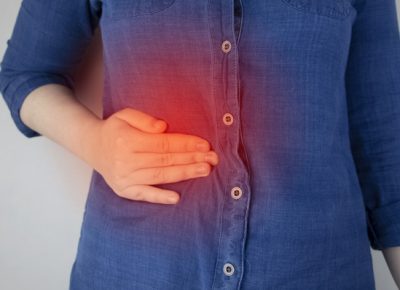October is National Liver Disease Awareness Month. Did you know that the liver can repair its own damaged tissue? This means that, in some instances liver damage is reversible. However, there are liver conditions that can cause permanent damage. This is why we stress that liver damage symptoms need to be identified and treated as quickly as possible. The providers at Ocean Family Gastroenterology understand the value of early diagnosis when it comes to the liver and other digestive health issues.
During National Liver Disease Awareness Month and year-round, we want you to pay close attention to the following list of common liver damage symptoms to watch out for. Contact us if you are experiencing symptoms of liver disease mentioned below or any other out-of-the ordinary digestive issues.
Decreased Appetite
Early-stage liver damage often causes nausea, weight loss, disinterest in food or a combination of the three. Furthermore, the first stage of hepatitis can bring on flu-like symptoms such as an upset stomach. Be proactive by visiting a doctor if you notice significant changes in your appetite or digestive health in general.
Abdominal Pain
Cirrhosis-induced pain usually presents itself in the upper right abdomen, just below the right ribs. This pain may throb or stab and it can come and go. If you experience this type of pain regularly, or if the intensity prevents you from functioning normally, seek medical attention as soon as possible.
Abdominal Swelling
Swelling can indicate a liver condition called ascites, in which a protein imbalance leads to fluid buildup. Swelling due to ascites is termed “potbelly” and commonly signals cirrhosis. In some cases, gravity pulls the fluid into other parts of the body, so swelling in the feet and hands may also occur.
Persistent Vomiting
As your liver becomes less capable of filtering toxins out of your body, your digestive issues will likely intensify. This means that the nausea or loss of appetite you experience in early stages of liver distress can escalate to unexplained vomiting. If you experience this symptom, it may be a sign that your liver damage is progressing, so seek medical care as soon as you can.
Increased Bruising
A damaged liver does not produce adequate amounts of clotting proteins, so you may bruise and bleed more easily than usual. Several conditions can lead to excess bruising, so be sure to check with your doctor if you notice this symptom.
Lethargy
Anxiety and stress can make you feel tired and weak, but it is important to pay attention to severe or prolonged exhaustion, as this could be a sign of low blood oxygen levels or waste accumulation due to reduced liver functions.
Jaundice
One of the most well-known and equally startling symptoms of liver damage, if you notice a yellowing of your skin or eyes, or changes in the color of your urine or stool, visit your GI doctor or another medical professional as soon as possible.
Mood or Personality Changes
Toxins in your body due to ineffective liver function can infiltrate your blood and travel to your brain. At first, you may experience confusion or concentration issues, but these can progress to changes in sleep, forgetfulness and even unresponsiveness. Promptly consult with a doctor if you notice these issues.
Fibroscan
FibroScan, an ultrasound device that measures liver scarring caused by liver disease, is offered at Ocean Family Gastroenterology. A probe from the device is used to test the velocity of ultrasound waves, which provides a measurement of liver stiffness. This allows your physician to determine how much scarring there is and the extent of disease present. The test is brief and results from the FibroScan can be provided quickly.
If you have experienced any of these symptoms of liver disease, or you have any others that you would like to address, the providers at Ocean Family Gastroenterology are here for you. Call us at 732-281-1590 or contact us online.
